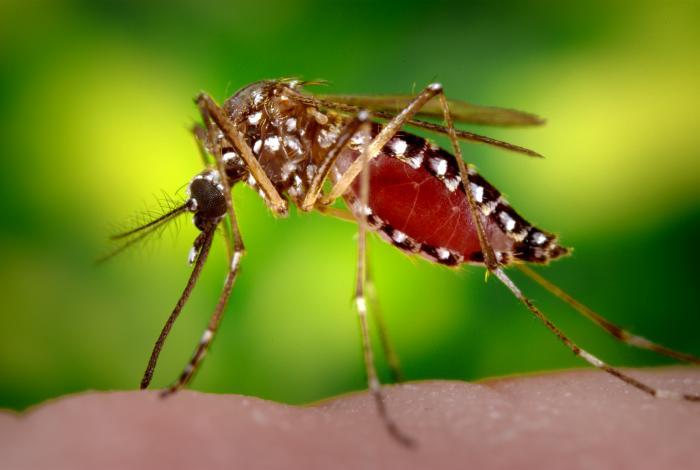Gene Drive Technology: Where is the future?

Gene drive technologies may one day help alleviate the burden caused by diseases transmitted by mosquitoes and other animal vectors. Credit: James Gathany
Gene drives have the potential to revolutionize approaches to major public health, conservation, and agricultural problems.
For instance, gene drives might one day prevent mosquitoes from spreading a variety of deadly diseases, including Zika virus, malaria, and others.
A form of genetic modification, the technology works by causing a particular genetic element to spread through populations, thereby making it possible to change species in the wild.
Despite the significant promise, caution is warranted, says a new report from the National Academies of Sciences, Engineering, and Medicine's Committee on Gene Drive Research.
According to the committee, gene drives raise a variety of ecological and regulatory questions that have yet to be answered.
For this episode of BioScience Talks, we're joined by committee co-chair James P. Collins of Arizona State University and committee member Joseph Travis of Florida State University.
They fill us in on the specifics of the report and on the future of gene drives.
To hear the whole discussion, visit this link for this latest episode of the Bioscience Talks podcast.
Media Contact
All latest news from the category: Life Sciences and Chemistry
Articles and reports from the Life Sciences and chemistry area deal with applied and basic research into modern biology, chemistry and human medicine.
Valuable information can be found on a range of life sciences fields including bacteriology, biochemistry, bionics, bioinformatics, biophysics, biotechnology, genetics, geobotany, human biology, marine biology, microbiology, molecular biology, cellular biology, zoology, bioinorganic chemistry, microchemistry and environmental chemistry.
Newest articles

Why getting in touch with our ‘gerbil brain’ could help machines listen better
Macquarie University researchers have debunked a 75-year-old theory about how humans determine where sounds are coming from, and it could unlock the secret to creating a next generation of more…

Attosecond core-level spectroscopy reveals real-time molecular dynamics
Chemical reactions are complex mechanisms. Many different dynamical processes are involved, affecting both the electrons and the nucleus of the present atoms. Very often the strongly coupled electron and nuclear…

Free-forming organelles help plants adapt to climate change
Scientists uncover how plants “see” shades of light, temperature. Plants’ ability to sense light and temperature, and their ability to adapt to climate change, hinges on free-forming structures in their…





















